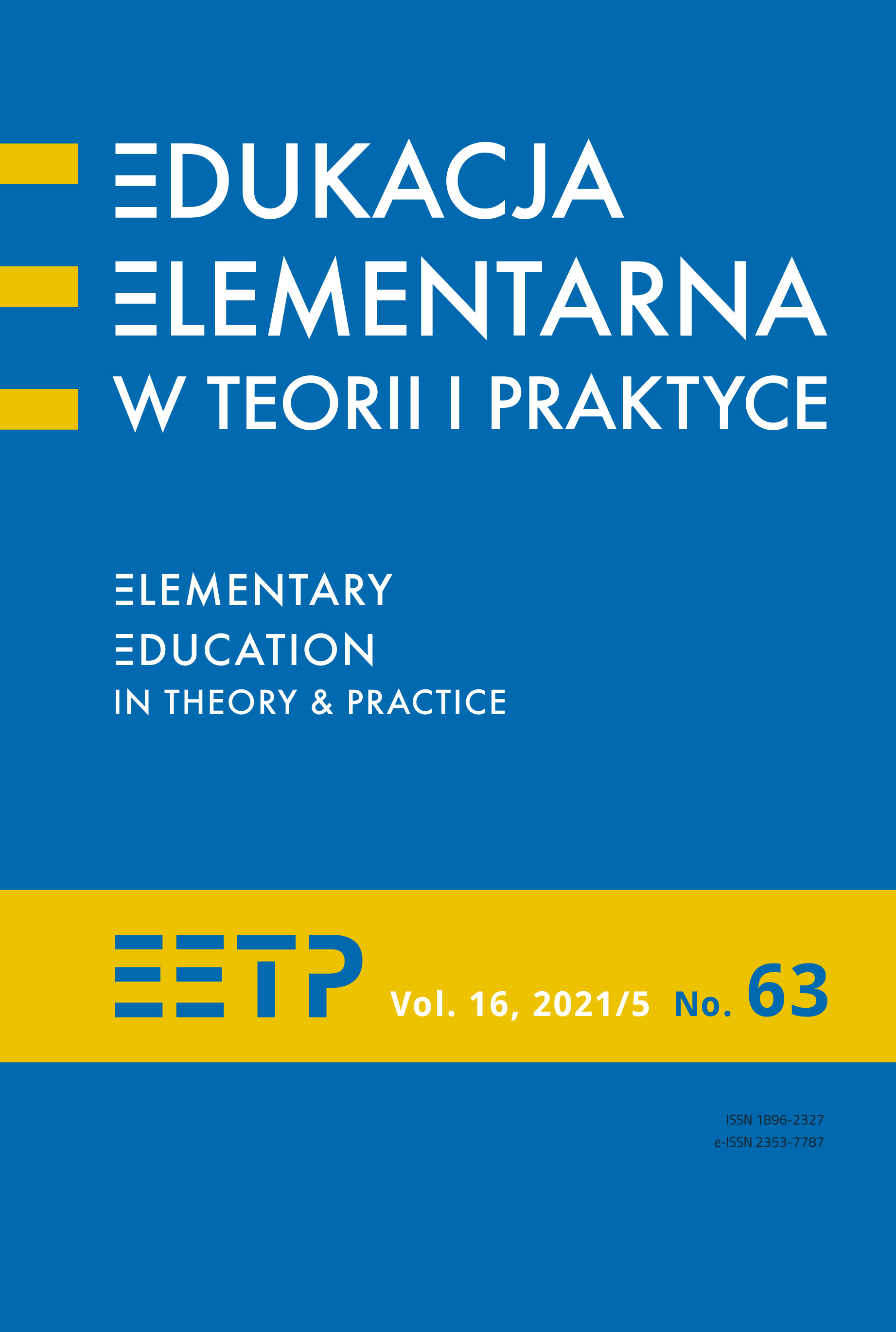Theology of Creation and Ecological Ethics. Introducing Ecological Themes to the Curriculum of Catechists
Abstract
The aim of the article is to analyze the content and methodology of the academic course prepared for students of catechetics, entitled "Theology of creation and moral ecology". The course is inspired primarily by Pope Francis’ encyclical Laudato si', which provides a deeper foundation for ecological ethics than secular ethics, also briefly recalled in the article. The argumentation leads to the conclusion that new initiatives of ecological catechesis are needed to shape the Christian attitude towards the natural environment, which at the same time is consistent with the state of modern scientific knowledge. The course presented in the paper may help in preparing future catechists for this task.
References
Benedict XVI. (2012). The Environment. Huntington, Indiana: Our Sunday Visitor.
Bołoz W., Jaromi S., Karaczun Z., Łepko Z., Papuziński A., Sadowski R. F. (2016). Ekofilozoficzne przesłanie encykliki Laudato si’, „Studia Ecologiae et Bioethicae” t. 14 nr 4, s. 109-128.
Borda M., Ceglarek R. (red.), (2016) Wybrane zagadnienia edukacji ekologicznej. Refleksje wokół encykliki Laudato si’, Kraków: Wydawnictwo Instytutu Teologicznego Księży Misjonarzy.
Borda M. (2016). Inspiracje katechetyczne w Laudato si’ (wybrane aspekty), [w:] M. Borda, R. Ceglarek (red.) Wybrane zagadnienia edukacji ekologicznej. Refleksje wokół encykliki Laudato si’, Kraków: Wydawnictwo Instytutu Teologicznego Księży Misjonarzy, s. 167-180.
Deval, B., Session G. (1994) Ekologia głęboka. Żyć w przekonaniu, iż Natura coś znaczy, tłum. E. Margielewicz, Warszawa: Wydawnictwo Pusty Obłok.
Franciszek. (2015). Encyklika Laudato si’. W trosce o wspólny dom, Vatican: Libreria Editrice Vaticana.
Gałkowski J. (1992). Człowiek – przyroda – wartości, „Humanizm ekologiczny”, t. 1, s. 41-50.
Gałkowski S. (2006). Człowiek w przyrodzie. Wartości ekologiczne i przedsiębiorczość [w:] K. Jaremczuk, (red.), Uwarunkowania przedsiębiorczości – Aspekty ekonomiczne i antropologiczno-społeczne, Tarnobrzeg: PWSZ w Tarnobrzegu, s. 801-810.
Kehl M. (2008). I widział Bóg, że to jest dobre. Teologia stworzenia, Poznań: W drodze.
Kostorz J. (2015). Katechetyczne znaczenie encykliki Laudato si’, „Studia Oecumenica”, nr 15, s. 69-79.
Interdicasterial Working Group of the Holy See on Integral Ecology (2020). Journeying Towards Care for Our Common Home. Five Years after Laudato si’, Vatican: Libreria Editrice Vaticana.
Miller P. (1982). Value as Richness: Toward a Value Theory for an Expanded Naturalism in Environmental Ethics, „Environmental Ethics”, nr 4, s. 101-114.
Poznański J., Jaromi S. (red.), (2016). Kościół i nauka w obliczu ekologicznych wyzwań. Źródła, inspiracje i konteksty encykliki Laudato si’, Kraków: Akademia Ignatianum w Krakowie, Wydawnictwo WAM.
Rolston III H. (1982). Are Values In Nature Subjective or Objective, “Environmental Ethics”, nr 4, s. 125-151.
Rolston III H. (1981). Values in Nature, “Environmental Ethics”, nr 3, s. 113-128.
UIC, Másteres y Postgrados en Educación, 2021, https://www.uic.es/sites/default/files/esp/master-postgrado-educacionpdf.pdf
UNESCO (2017). Education for Sustainable Development Goals. Learning Objectives, Paris: UNESCO. https://www.unesco.at/fileadmin/Redaktion/Publikationen/Publikations-Dokumente/2017_Education_for_SDG.pdf
Copyright (c) 2021 Elementary Education in Theory and Practice

This work is licensed under a Creative Commons Attribution-NoDerivatives 4.0 International License.
- When submitting a text, the author declares that he/she is the Author of the article (hereinafter referred to as the “Work”) and:
- he/she owns the exclusive and unlimited copyright to the Work,
- is entitled to dispose of the copyright to the Work.
Declares that it does not infringe any third party copyrights or legal rights.
Declares that there is no conflict of interest.
2. At the same time, the Author grants the Ignatianum University in Cracowa royalty-free, non-exclusive and territorially unlimited licence to use the Work in the following fields of exploitation:
- recording the Work in a hard copy, as well as on a digital or magnetic medium;
- reproduction of the Work using any technique, without limitation of the number of editions or copies;
- distribution of the Work and its copies on any medium, including marketing, sale, lending, and rental;
- introduction of the Work into a computer memory;
- disseminating the Work in information networks, including in the Internet;
- public performance, exhibition, display, reproduction, broadcasting and re-broadcasting, as well as making the Work available to the public in such a way that everyone can have access to it at a time and place of their own choosing;
- within the scope of dependent rights to the Work, including in particular the right to make necessary changes to the Work resulting from editorial and methodical development, as well as to translate the Work into foreign languages;
The licence is granted from the moment of the transfer of the Work to the Ignatianum University in Cracow. The Ignatianum University in Cracow is entitled to grant further sub-licences to the Work within the scope of the right granted. The licence is time-limited and it is granted for a period of 15 years, starting from the date of its granting.
Authors are permitted and encouraged to publish their text online (e.g. in their institution’s repository or on the institution’s website) before or during the submission process as this may lead to beneficial exchanges, as well as earlier and greater citation of the published text (See The Effect of Open Access). We recommend using any of the following portals of research associations:
- ResearchGate
- SSRN
- Academia.edu
- Selected Works
- Academic Search




